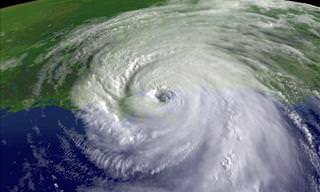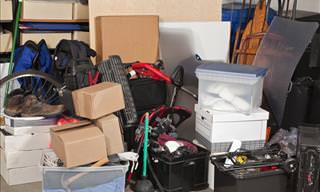


These tips will be handy whether you left your home during a storm or stayed in a storm cellar. Follow these steps for a safe return.
Exterior inspection
1. If your home was closed down for several days, open the windows and let air in for 30 minutes before re-entering the house.
2. Only inspect your home exterior during the daytime. Wear long clothes and protective gear, if you have any.
3. Be wary of snakes, broken objects, tree parts, fallen or compromised power lines, and flood water.
4. Inspect your home exterior first, starting at the top and going down to the foundation. Document every damage carefully and take clear pictures.
5. If any siding is loose, inspect behind it for water leakage.
Interior first-aid
1. First, look around for any broken gas lines or flooded areas.
* If there is standing water in your home but the access to the main power break is dry, turn it off. If it is not, leave the house and call an electrician to turn it off.
* If you smell gas, stay out of the property and contact your utility company.
2. Clean and dry your home as soon as possible. The first 48 hours are the most critical in mold prevention. Position the fans to blow air outdoors.
3. Throw away anything that can't be dried and cleaned quickly, including toys and mattresses. Remove drywall and insulation that has been wet, even if it is now dry. Keep an inventory of everything you discarded.
4. Clean the floors, surfaces, countertops, appliances, and plumbing fixtures with warm water and dish soap.
5. Throw away any food that may have come in contact with flood water. Bottled or boiled water is safe.
6. Inspect your home for mold and contaminants. If water penetrated your home at all, there probably is mold. Water heating and air conditioning systems, in particular, are prone to bacteria and mold growth if they've been flooded. Call for a professional inspection before turning those on.
7. Board up broken windows as a quick safety measure until you get them professionally resealed.
* Opt for flashlights over candles and keep a fire extinguisher close by at all times.
* Leave the building if you hear sudden unusual noises. This could signal that the building is about to fall.

How to work well with the insurance company
*If your house will be unsafe for a substantial period, contact your insurance company for details about temporary accommodation.
*Keep records of unusual expenses on temporary repairs and avoid any permanent ones until a professional has reviewed the damage.
*Keep a list of damaged personal belongings recording them in as much detail as possible.
*Record serial and model numbers of appliances and household equipment.
How to get federal help
FEMA can offer you temporary housing, repairs, and financial help for medical expenses. Register here: disasterassistance.gov
*You may be eligible for tax relief. Check the IRS website to find out: irs.gov
Fur further information on conducting yourself during a natural disaster, visit the CDC website: cdc.gov.

Ever Wondered How Hurricanes Are Named?
Hurricane Laura, hurricane Sandy... If you've ever wonderd how hurricanes get their names, it turns out it is not random at all.

7 Mistakes to AVOID When Preparing For a Hurricane
Hurricane season is at its height - these are the mistakes to avoid in order to stay safe!

Photos Before and After Hurricane Sandy!
It's been more than a week since Hurricane Sandy hit the eastern coast of the United States, and the residents are trying to get back to normal, but it isn't a simple affair...

Hurricane Season is Now In Full Swing. Are You Prepared?
Hurricanes are violent tropical storms that often form in the Atlantic Ocean. Find out all about them and how to prepare for them if you live in their path.
 15:01
15:01
16 Survival Gadgets for Any Emergency Situation
These cool gadgets can be extremely useful in any emergency situation.

Are Your Windows Drafty? Here are 10 Solutions!
In this article, we will look at 10 common and less common solutions to those pesky drafty windows.
 3:11
3:11
Misplaced Your Spectacles? How to See Without Them
We all forget spectacles on occasion, and regretably they sometimes break too. If you're caught in this situation the following tip will show you how to see.

This is How You Keep Your Marriage Strong & Life-Long!
Here are 12 ways you can keep your marriage long-lasting, strong, full of love and support.

Stop the Stink: Reduce Armpit Odor With These Handy Tips
Take note of these useful tips that will help you get rid of underarm odor.

Spot the Signs of Hurry Sickness and Start Slowing Down
Many of us don’t even realize the toll “hurry sickness" has on our lives. Here's how you can cope with it.
 4:38
4:38
10 Clever Uses of WD-40 I Really Want to Try
Here are 10 alternative uses of WD-40 few people are aware of!

Warning: Are You Overlooking These 10 Home Risks?
Home is where the heart is, but it’s also where a load of potential dangers lurk as well. Here are ten of them!
 15:54
15:54
Are You Really Taking Good Care of Your Skin?
Are you really taking good care of your skin? Watch this video to find out about 19 serious skincare mistakes that are unfortunately quite common...
 8:22
8:22
8 Easy Ways to Get Your Knife Razor Sharp
Got a blunt knife at home? Sharpen it easily with these nifty hacks.

20 Cooking Tips Everyone Should Be Aware Of
These cooking tips will hopefully close a lot of little holes in your kitchen knowledge.
 4:11
4:11
Say Goodbye to Marble Stains - Cleaning Hacks That Work!
Say goodbye to those stubborn marble stains with these useful cleaning hacks.

This 2-Ingredient Cleaner Will Leave Your Deck Spotless
If your deck is dirty, you can clean it easily using this simple 2-ingredient cleaner.
 11:34
11:34
23 Hacks That'll Come in Handy in Embarrassing Moments
If you ever find yourself in an embarrassing situation, these hacks will save you.

Plagued By Liver Spots? Here Are 9 Ways to Get Rid of Them
Skin spots are a reality for many of us and can often be a nuisance. But, fortunately, they can be lightened with these 9 natural ingredients.

5 Wonderful Facial Scrubs You Can Easily Make at Home
There's no reason to spend a fortune on branded facial scrubs, when you can easily make some at home!

Mindfulness Techniques that Will Make Your Life Easier
A mindfulness technique to calm yourself down and feel at peace.

Should You Preheat the Car Engine When It’s Getting Cold?
Experts say that leaving the engine run idle in cold weather is both a waste of your money and terrible for the car engine and the environment.

What Should You Do When a Freezer is Frosting Up?
Is frost frequently building up in your freezer? Here’s what you can do to tackle the issue.
 22:48
22:48
How to Pick the Right Frying Pan for Every Recipe
Upgrade your cooking skills instantly with this full guide to frying pans and saucepans, so that your cookware works with you, and not against you!
 25:00
25:00
How to Pick the Right Potato For Every Recipe
Some potato varieties shine in a soup or stew, while others are delicious for roasting and frying. Here's a full guide to potatoes and where to use them!

Debunking 8 Common Misconceptions About Taxes
Let’s break down eight of the most common tax myths and clear up the confusion once and for all.

10 Housekeeping Habits That Only Make Your Home DIRTIER
Should you put a cutting board in the dishwasher? Is it better to do laundry in hot water? If you answered ‘yes’, you ought to continue reading this article...

14 Little Known Ways to Save on Gas While Driving!
If you take heed of these 14 easy pieces of advice, you will end up saving hundreds of dollars each year on gas.

19 Household Items You Need to Change Now
It's high time you change these household items.

9 Things in Your Attic That Could Be Worth a Fortune
If you have an attic full of old items and antiques, look for these 9 items. They're a real jackpot!
 5:59
5:59
Animal Advice: How to Make Any Cat Like You
How to charm any cat you meet into liking you.

13 Ways to Reduce Annoying Household Noises for Good
Try these practical strategies to tackle the most common sources of noise in your home.
 11:10
11:10
Prepare To Fall in Love With Quinoa
Quinoa has so much to offer if you only know how to unlock its best features. Let cooking instructor Hellen Rennie tell you how.
 8:07
8:07
The 5 Best Ways to Do Your Laundry Quickly and Efficiently
What's the best way to clean a pair of shoes, or remove grease from fabric? Take a look:
 3:15
3:15
Cleaning Tips: The Best Ways to Save Your Burnt Pot
Cleaning a scorched pot without scrubbing is possible! Here are some tips to make it look as good as new with ease.

Baking Is Tricky. But With Tips Like These, It’s a Breeze
These 11 essential tips will ensure your hard work in the kitchen baking pays off without fail.
 20:57
20:57
22 Smart Ways of Using Old Things Around the House
This great tips video will save you money by teaching you how to use those old items around the house in a new way.

Rodent Alert: Ways You May Be Inviting Mice into Your Home
Have you been unknowingly attracting rodents into your home? Below we list 6 ways you may actually be inviting these pests into your house...

How to Take Fewer Trips to the Grocery Store
Struggling to visit the grocery store way too often, in light of the Covid-19 pandemic? These tips will help you shop for food more seldom...

Nutritional Tips for Older Dogs: Diets That Work
Make sure your senior dog stays healthy with these tips.

12 Clever Ways of Decluttering Your Home of All That Junk
Don't just throw away the junk you have at home, learn to reuse and recycle it the smart way with these 12 clever tips

8 Spice Plants Perfect to Plant for the Fall Season
Here are 8 fragrant and delicious herbs that are highly recommended to grow yourself, including growing instructions for each one of them.

This Breathing Technique Will Change the Way You Breathe
Professionals who practice the Buteyko method claim it can help treat about 150 different health issues, including diabetes, attention difficulties, and chronic fatigue.
 13:03
13:03
Running Out of Storage Space? Keep These 20 Tips in Mind
Running out of storage ideas? Here are 20 space saving ideas to bear in mind.

How Waking Up at 5.30am Will Change Your Life!
Find out how waking up at 5.30am will have a positive impact on your life.

8 Of the DIRTIEST Household Items and How to Clean Them
Even in the cleanest of homes, germs might be lurking in the most surprising everyday items. These are 8 items you should look out for and clean regularly.

Watch Out! Is Your House Being Watched by Robbers?
Is your house being watched by robbers? Watch out for these 10 crucial signs.
To enable your Ad-Free Subscription, please fill the fields below
Your subscription was successful, now you can enjoy an ad-free experience!! Note: To make sure you get no ads, please make sure to log in to your account. If you are logged in already, then refresh the page. The subscription can be cancelled at any time.


